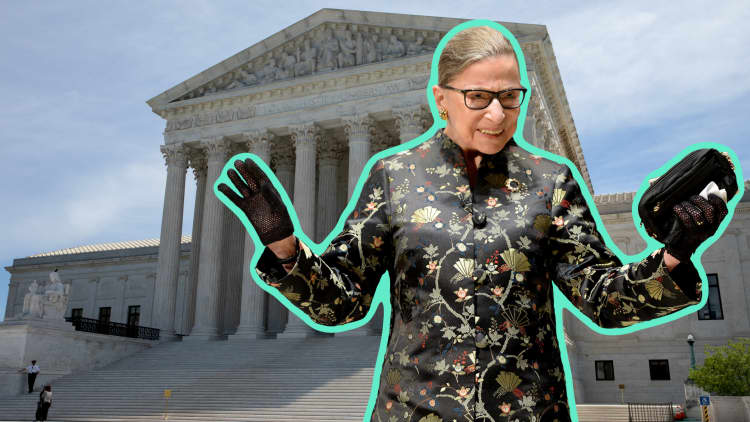The Supreme Court seemed skeptical of the Trump administration's interpretation of the Clean Water Act during oral arguments in a major environmental law case on Wednesday.
The case concerns whether polluters must obtain federal permits for dumping pollutants indirectly into the nation's oceans and streams via groundwater or whether they must only do so for pollutants that enter such waters directly.
The court's four liberals seemed disinclined to agree with arguments put forward by the Trump administration and Hawaii's county of Maui that indirect pollution should not require Clean Water Act permits.
The court's conservatives appeared split on the matter, though Chief Justice John Roberts and Justice Brett Kavanaugh indicated they may side with environmentalists, who argued that allowing such indirect pollution would effectively carve out a wide loophole in the landmark regulation.
The case is the biggest environmental dispute of the term. President Donald Trump has sought to roll back federal regulations, in contrast to the positions taken by his predecessor Barack Obama.
Though the dispute in the case seems like a technical distinction, forces on both sides have said the consequences of a ruling against them could be dire.
Business groups argue that requiring a permit for indirect pollution could harm agricultural producers, while environmentalists say that not doing so will upset decades of precedent that have kept the nation's waterways clean.
Read more: Brewers warn Supreme Court: Back the Clean Water Act, or beer will taste like medicine
Also at issue during arguments was whether the position put forward by the environmentalists, represented by Earthjustice staff attorney David Henkin, could saddle unwitting homeowners with steep fines brought on by shoddy septic tanks.
The case arose in 2012 when a collection of environmentalists sued the county of Maui over a wastewater treatment facility on the island that injects millions of gallons of treated waste each day deep into the ground. An EPA-ordered study showed that nearly all of that treated waste ultimately ends up in the Pacific Ocean.
For much of the argument, the justices pressed both Maui and the Trump administration on the possible circumstances in which a business could pollute the nation's waters without needing a permit.
Justice Stephen Breyer, one of the court's Democratic appointees, asked Maui's attorney Elbert Lin why a polluter would not simply drop pollutants feet from the water's edge. Lin responded that while doing so could avoid federal regulation, "there are laws, including in Hawaii," that might prevent it.
Kavanaugh told Lin that his argument resembled an argument that Justice Antonin Scalia rejected in a 2006 case, Rapanos v. United States. In a plurality opinion in the case, the late justice noted that the Clean Water Act forbade the addition of pollutants "to" a waterway, not "directly to."
In a back-and-forth with deputy solicitor general Malcolm Stewart, who was arguing in support of Maui, Roberts pressed for a limit to the government's argument. He asked if "any little bit" of groundwater between the facility and the ocean would make a permit unnecessary.
"Two inches?" he asked.
Stewart said that was the case, though he did not believe such a situation was realistic.
While there appeared to be a majority of justices who believed the Trump administration's line-drawing was too lenient, it was not clear how the court will ultimately come down on when a permit is required. Federal appeals courts have been divided on the issue.
The 9th U.S. Circuit Court of Appeals, which sided with the environmentalists against Maui, ruled that the pollutants must be "fairly traceable" from their source to the waterway. Roberts suggested that may be too strict.
"It's just a question of how sophisticated the instruments are that can trace it," he said.
Breyer, wrestling with the question, suggested requiring a permit in a case where indirect pollution is the "functional equivalent" of direct pollution.
"I am worried about 500 million people or something" having to get a permit from the EPA, he said. At one point in the argument, Lin noted that fines for noncompliance with the Clean Water Act's permitting rules can reach $50,000 per day.
The court's harshest questioning was directed at Lin's argument that indirect pollution is best handled by state regulators.
Justice Sonia Sotomayor, an Obama appointee, noted that, despite such state regulation in Hawaii, Maui was still pumping millions of gallons of waste into the Pacific Ocean via groundwater. If state regulation were sufficient, she suggested, that would not be happening.
"You're doing it," she said. "How did you get away with it?"
The case is County of Maui, Hawaii v. Hawaii Wildlife Fund, et al. No. 18-260.



